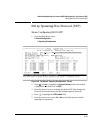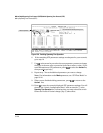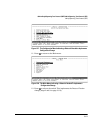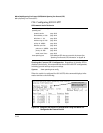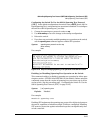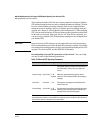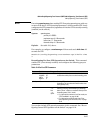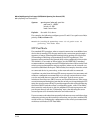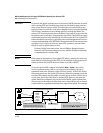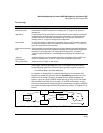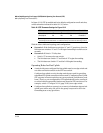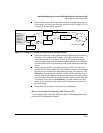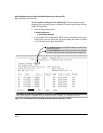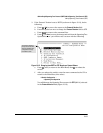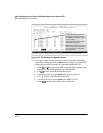
802.1w Rapid Spanning Tree Protocol (RSTP) 802.1d Spanning Tree Protocol (STP)
802.1p Spanning-Tree Protocol (STP)
Caution The Fast Mode configuration should be used only on switch ports connected
to end nodes. Changing the Mode to Fast on ports connected to hubs, switches,
or routers may cause loops in your network that STP may not be able to
immediately detect, in all cases. This will cause temporary loops in your
network. After the fast start-up sequence, though, the switch ports operate
according to the STP standard, and will adjust their state to eliminate continu-
ing network loops.
To Enable or Disable Fast Mode for a Switch Port:
You can use either the CLI or the menu interface to toggle between STP Fast
mode and STP Normal mode. (To use the menu interface, see
“Menu: Config-
uring 802.1D STP” on page 13-19.)
Syntax: spanning-tree <port list> mode <fast | norm>
For example, to configure Fast mode for ports C1-C3 and C5:
HPswitch(config)# spanning-tree c1-c3,c5 mode fast
Fast-Uplink Spanning Tree Protocol (STP)
Fast-Uplink STP is an option added to the switch’s 802.1d STP to improve the
recovery (convergence) time in wiring closet switches with redundant
uplinks. Specifically, a Series 5300XL switch having redundant links toward
the root device can decrease the convergence time (or failover) to a new
uplink (STP root) port to as little as ten seconds. To realize this performance,
the switch must be:
Used as a wiring closet switch (also termed an edge switch or a leaf
switch).
Configured for fast-uplink STP mode on two or more ports intended for
redundancy in the direction of the root switch, so that at any time only
one of the redundant ports is expected to be in the forwarding state.
Not e Fast-Uplink STP operates only with 802.1d STP and is not available with the
Rapid STP (802.1w) feature (
page 13-7).
13-27



